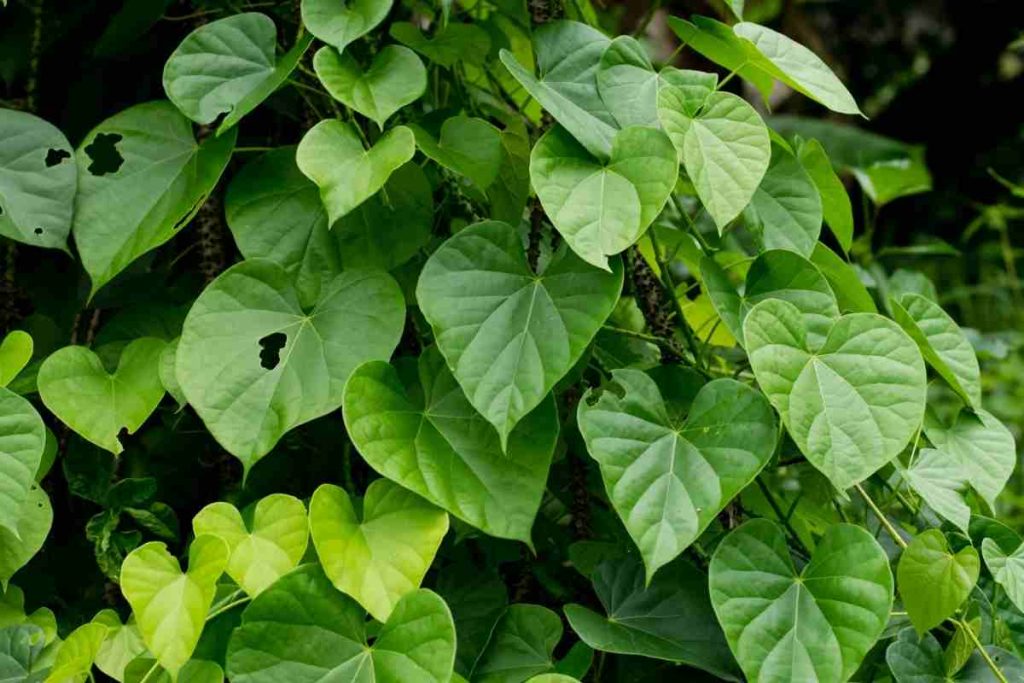
Table of Contents
Guduchi
In this article, we’ll discuss the morphology of Tinospora cordifolia, Ayurveda’s use of Guduchi, and its medicinal properties. We’ll also discuss its use for improving the immune system. And, because it is a 100% natural herb, its effectiveness can be expected to be long-lasting. So, let’s get started. First, let’s review what Ayurveda has to say about the drug.
What Ayurveda says about Guduchi
What Ayurveda says is that this plant can help cure cancer, strengthen the immune system, and improve digestion. It has also been known to improve the liver’s function and help fight hepatitis. The herb also has anti-diabetic properties. It is a valuable medicinal herb that is native to India and has been used for centuries.
The ancient Ayurvedic sage CHARAKA categorized it under two groups: vaya and sthapana. Vaya is the primary dosha, and the other two are vata and Pitta. Both types of dosha are balanced when you consume guduchi. The herb also boosts cognitive function, and is a popular choice for calming the mind.
While there haven’t been any significant studies on the safety of Guduchi during pregnancy, it’s best to consult your Ayurvedic physician before consuming it. Guduchi is safe in recommended dosages, but you should consult your physician for specific recommendations. In addition, there are general precautions when using guduchi, including avoiding it in large doses and not taking it in pregnancy.
In India, the plant is linked to the ancient epic “Ramayana.” Its mythological significance is associated with the rebirth of the dead. Indra, the god of the sky, sprinkled nectar to resurrect animals. Guduchi was also a key part of the Ramayana story. Its use is based on the belief that it can bring life and protect against diseases.
Morphology of Tinospora cordifolia
Tinospora cordifolia, commonly known as ‘GUDUCHI’, is a deciduous vine native to the tropical regions of India, Burma, and the Andaman Islands. It has significant medicinal value in traditional systems of medicine. Its flowers are staminate and produce a female flower phase. Its morphology is highly variable.
The morphology of leaves of the two species is different. Tinospora sinensis has a unicellular head, while Tinospora cordifolia has pearl glands. The latter species is the most widely planted. The morphological differences between these two species are discussed in this article. Read on to learn more about the morphology of this popular climbing shrub.
There are many roles for Tinospora cordifolia. One is the anti-inflammatory and gastroprotective effect, while the other is known for its aphrodisiac activity. In an experiment on albino rats, tinospora cordifolia showed anti-ulcer and anti-inflammatory effects. Moreover, it was also found to have anti-ulcer and anti-pyretic activity.
Starch granules of 33 genotypes of T. cordifolia were prepared from fresh stems and fixed in glycerine. They were then examined under a compound microscope at 40x magnification. Digital photomicrographs of these starch granules were recorded. The size of each starch granule was measured using image analyser software.
Medicinal benefits of Guduchi
Among the most important meditative herbs, Guduchi has a wide array of medicinal benefits. It is often used for improving memory, cognitive function, and learning potential. It is also said to reduce stress levels. Medicinal benefits of Guduchi can help people with various health conditions, including diabetes and arthritis. These herbs are also known to improve your body’s immune system. They are also said to help lower blood glucose levels.
The root of Guduchi is very strong and thin, and it is therefore used to treat surgical wounds. The plant is believed to have originated from nectarous drops that fell to the Earth and formed the sacred Guduchi plant. It is often used as a tonic, especially for ears. It has the same effects as Tinospora, but is less potent. Traditionally, Guduchi has been used to treat heart ailments, fever, and pain, but its medicinal value goes beyond the plant’s root properties.
Ayurvedic practitioners believe that the herb is one of the three “amrit” plants. Amrit is the nectar of the gods and Guduchi is one of three. Various scientific studies have proven the herb’s anti-inflammatory and anti-spasmodic properties. As a rejuvenator and immune-boosting herb, Guduchi can improve a variety of health conditions, including diabetes and arthritis.
